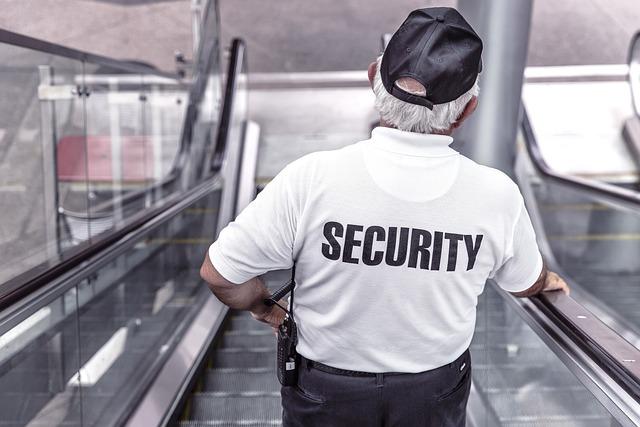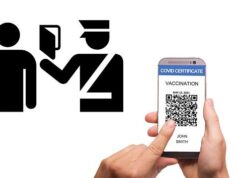In the vast and diverse landscape of Texas, the demand for security guards is not only a reflection of the state’s vibrant growth but also a testament to the importance of public safety in our communities. Becoming a security guard in Texas offers individuals the opportunity to play a vital role in safeguarding their surroundings, whether it’s protecting assets, ensuring the safety of events, or providing peace of mind to businesses and residents alike. This journey, while rewarding, requires a clear understanding of the necessary steps, qualifications, and training involved. From basic eligibility criteria to specialized training avenues, this guide outlines everything you need to know to embark on a fulfilling career in security within the Lone Star State.
Understanding the Role of a Security Guard in Texas
A security guard in Texas plays a vital role in safeguarding individuals, property, and assets. Their responsibilities extend beyond mere surveillance; they must actively monitor environments, assess potential threats, and take appropriate action to ensure safety. Key duties often include:
- Patrolling designated areas to deter criminal activity
- Responding to alarms and emergencies promptly
- Checking identification and enforcing access control measures
- Documenting incidents and completing reports for management review
To effectively fulfill these responsibilities, security guards in Texas must adhere to specific training requirements regulated by the state. Depending on their role, they may be classified into various levels, such as Level II (non-commissioned or unarmed) and Level III (commissioned or armed). Each level requires distinct training and certification processes, ensuring that security personnel possess the necessary skills and knowledge to perform their duties safely and effectively. The expectation is that guards not only maintain a physical presence but also communicate clearly, exhibit professionalism, and exercise sound judgment in high-pressure situations.
Exploring the Educational Requirements for Security Guards
When considering a career as a security guard, understanding the educational requirements is crucial. Most employers do not mandate a college degree; instead, the minimum educational qualification typically involves a high school diploma or equivalent. This foundational education equips individuals with essential skills in critical thinking and communication, which are vital in the security field. Additionally, some training programs may offer specialized courses that cover topics such as emergency procedures, conflict resolution, and access control, all of which enhance a candidate’s employability.
Beyond basic education, obtaining a security guard certification can further bolster one’s credentials. While not always mandatory, having this certification demonstrates a commitment to the profession and can set candidates apart in a competitive job market. Furthermore, security guard training often emphasizes practical skills through hands-on instruction, ensuring that prospective guards are well-prepared for the challenges they may face. Embracing ongoing education and training opportunities can also help security professionals stay updated with the latest industry standards and best practices.
Navigating the Licensing Process in Texas
Becoming a security guard in Texas involves navigating a structured licensing process that ensures individuals meet the necessary requirements to protect property and maintain safety. Prospective security guards must first complete the following steps to attain their licence:
- Training: Complete an approved training program that covers essential topics such as security procedures, emergency response, and legal considerations.
- Background Check: Undergo a thorough criminal background check, which is a crucial part of the application process.
- License Application: Submit a licensing application through the Texas Department of Public Safety (DPS), ensuring all required documentation is included.
- Fees: Pay the necessary licensing fee, which is typically associated with the application and processing of your credential.
Once the application is submitted, the Texas Department of Public Safety reviews it for approval. If approved, you will earn your security guard licence, allowing you to work in various settings, such as retail stores, corporate offices, and public events. Maintaining this licence requires ongoing education and renewal to stay updated on legal and procedural changes in the security industry, ensuring that you remain a competent and capable protector in your community.
Essential Skills for Aspiring Security Guards
For those considering a career in security, developing a robust skill set is crucial to ensuring safety and effectiveness on the job. Observation skills stand out as one of the most vital attributes; the ability to notice details, identify unusual behavior, and assess potential risks can prevent incidents before they escalate. Additionally, communication skills are essential, as security guards often serve as the first point of contact in emergencies and need to relay information clearly and concisely to both the public and law enforcement personnel. Other essential skills include problem-solving abilities to think quickly during unexpected situations, and customer service skills to interact positively with clients and visitors, fostering a sense of security in the environment they oversee.
Moreover, physical fitness plays a significant role in the daily responsibilities of a security guard. Being physically fit enables guards to respond effectively to emergencies, conduct patrols efficiently, and handle confrontational situations if necessary. Equally important is a strong sense of integrity and ethical judgment; security personnel are often trusted with sensitive information and must act with professionalism and discretion at all times. familiarity with technology, including surveillance systems and communication devices, is increasingly crucial in today’s security landscape, where many incidents are recorded and monitored through advanced systems.
Different Types of Security Guard Jobs in Texas
In Texas, the landscape of security guard jobs is as diverse as the state itself, offering various roles to match different skills and preferences. Uniformed security guards are often seen patrolling public areas, monitoring for suspicious activities, and ensuring safety at events or retail establishments. For those with more specialized training, armed security positions provide an opportunity to work in high-risk environments where additional protection is necessary. Additionally, mobile patrol officers drive between locations, providing oversight and responding to incidents, making them essential for businesses that require a flexible security presence.
Another fascinating area is gate guarding, particularly popular in remote construction sites and temporary events. In this role, guards control access, maintain logs, and ensure that only authorized personnel enter the premises. For individuals interested in the corporate world, positions as corporate security representatives offer a chance to work directly with companies to assess risks, develop emergency plans, and manage onsite security teams. Each of these roles plays a critical part in maintaining safety and security across Texas, allowing individuals to find a path that aligns with their aspirations and skills.
Finding the Right Security Guard Training Programs
Choosing the right training program is essential for aspiring security guards in Texas. Start by identifying programs that offer the necessary courses, such as the Level II Non-Commissioned Officer training, which lasts four hours and covers vital topics including fundamental security procedures, Texas law, and report writing. This foundational training is crucial for obtaining your licence. When evaluating training schools, look for those that are accredited and have received positive reviews from past students. This feedback can provide valuable insights into the quality of education and support you can expect during your training.
Additionally, if you’re considering becoming an armed security officer, it’s important to find programs that comply with the state’s regulations. Armed security guards must not only complete basic training but also acquire a weapons permit. Ensure the program you choose includes comprehensive firearm safety training and prepares you for the necessary state licensing exams. You might also want to join forums or groups of current security personnel to gather recommendations for reputable training facilities. This collaborative approach can help you make an informed decision that aligns with your career goals.
Tips for Crafting an Impressive Security Guard Resume
When crafting your resume for a security guard position, it’s essential to highlight your qualifications effectively. Start by including a professional summary that encapsulates your experience and skills. Ensure to list your relevant certifications, such as CPR, First Aid, and specific industry credentials like SIA or ASIS. Use action verbs to describe your past roles, focusing on achievements that demonstrate your ability to maintain safety and security. Additionally, tailor your resume to reflect the specific requirements of the job you are applying for, as this can greatly enhance your chances of making a lasting impression.
In addition to your skills and experience, the format of your resume plays a critical role in its overall impact. Choose a layout that is clean and easy to navigate, such as a chronological or combination format that prioritizes your most relevant experience. Consider incorporating a section for key skills where you can showcase abilities such as surveillance, communication, and emergency response techniques. Lastly, ensure your resume is free from errors and professionally presented, as this reflects your attention to detail, a crucial trait for any security guard.
Preparing for Security Guard Interviews: What to Expect
When preparing for a security guard interview, candidates should anticipate questions that assess their situational judgment and problem-solving abilities. Employers often seek individuals who can think critically under pressure. As such, it’s beneficial to familiarize yourself with potential scenarios you might encounter on the job. Preparing responses to questions about handling conflicts, observing suspicious behavior, or taking action during emergencies will showcase your readiness. In your answers, focus on demonstrating your ability to remain calm and collected, as this is essential in ensuring safety and security.
In addition to situational questions, interviewers will likely inquire about your background and experiences related to security. Consider highlighting your knowledge of security protocols and any prior experience, even if it’s not directly related to security. Be prepared to discuss the following aspects during your interview:
- Your understanding of local security regulations
- Experience with surveillance systems or security technology
- Teamwork and communication skills in a professional environment
- Your approach to maintaining vigilance and attention to detail
By thoughtfully addressing these topics, you can effectively demonstrate your qualifications and enthusiasm for a career in security.
Building a Professional Network in the Security Industry
Networking in the security industry is vital for advancing your career and enhancing your knowledge. To effectively build this network, consider joining professional organizations such as the International Foundation for Protection Officers (IFPO) or the American Society for Industrial Security (ASIS). These organizations provide valuable resources, including access to industry events and training programs, which can help you connect with experienced professionals and gain insights into the latest security trends. Additionally, attending local security conferences and workshops can offer opportunities to meet peers and potential mentors who can guide you through your career path.
Utilizing social media platforms is another powerful tool for expanding your connections. Platforms like LinkedIn can help you showcase your skills and experiences while allowing you to follow industry leaders and participate in discussions relevant to security. Joining specific groups focused on security services can amplify your visibility and facilitate relationships with other professionals. Remember to actively engage by sharing insights, asking questions, and offering assistance when possible. Building a reputable presence online will not only increase your professional network but also position you as a knowledgeable resource in the security community.
Understanding Job Responsibilities and Expectations
Embarking on a career as a security guard in Texas involves understanding the multifaceted responsibilities that come with the role. Security guards are not only tasked with monitoring premises but also play a crucial part in crime prevention and ensuring the safety of individuals within their designated areas. Key expectations include maintaining a visible presence to deter potential threats, conducting regular patrols, and being vigilant for any suspicious activity. Additionally, security personnel are often responsible for communicating effectively with the public and law enforcement to address security concerns promptly.
To excel in this field, adherence to a specific set of duties is essential. These typically encompass:
- Surveillance and Monitoring: Observing and reporting on activities within the assigned area.
- Emergency Response: Reacting swiftly to incidents such as theft, vandalism, or medical emergencies.
- Access Control: Managing entry points to ensure only authorized individuals enter premises.
- Documentation: Keeping detailed records of incidents and daily activities for future reference.
Being well-versed in these responsibilities will not only enhance your ability to perform effectively but will also contribute to a safer environment for everyone involved.
Continuing Education and Advancement Opportunities in Security Fields
In the dynamic field of security, continuous education is essential for maintaining and enhancing professional standards. Security guards in Texas are encouraged to pursue ongoing training opportunities that bolster their skills and knowledge. Many employers provide in-house training programs that cover critical areas such as conflict resolution, emergency response, and customer service. Additionally, industry associations offer certification courses that can improve employability and open doors for career advancement. Participating in workshops and seminars not only keeps security personnel updated on the latest practices but also fosters a proactive approach to real-world challenges they may face on the job.
Advancement in the security sector often hinges on one’s commitment to professional development. By regularly engaging in continuing education, professionals can specialize in various areas such as loss prevention, transportation security, or cybersecurity. Certificates in these fields can significantly enhance a security guard’s resume, making them more competitive in a crowded job market. Furthermore, networking opportunities through education-focused events can lead to valuable connections with industry leaders and potential employers, paving the way for roles such as supervisor, manager, or even consultant in security-related projects. Embracing lifelong learning is not just beneficial—it’s a vital strategy for anyone aspiring to excel in the security field.
To Wrap It Up
As you embark on your journey to become a security guard in Texas, remember that every step you take contributes to building a safer community. The path may involve thorough training, background checks, and obtaining the necessary licenses, but each requirement is designed to ensure that you are well-prepared for the responsibilities ahead. Whether you choose to serve as a non-commissioned unarmed officer or as an armed commissioned guard, your role is vital in protecting people and property. With dedication and commitment, you can not only secure a position in this essential field but also foster trust and safety in the environments you serve. Embrace the opportunity to make a positive impact, and take pride in the important work that lies ahead.




